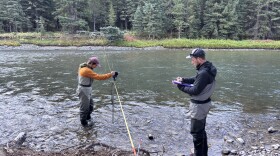-
Lincoln County was hit hard by flooding from winter storms in 2025. Records of major floods in the area date nearly 100 years. A closer look at that history shows decades of mitigation measures, plans and preparations that officials say prevented further catastrophe in December.
-
The EPA Friday repealed standards for limiting toxic mercury, arsenic and lead that come out of power plants. The Colstrip power plant in Montana is one of the highest emitters of these cancer-causing chemicals.
-
A former Montana solicitor general has been nominated to become one of the state’s three federal judges. The U.S. Fish and Wildlife Service is being sued for refusing to draft a national recovery plan for wolves. Montana’s highest court has upheld the conviction of a Kalispell man for obstructing police officers while he was filming a traffic stop.
-
Federal environmental regulators Thursday repealed the bedrock finding that climate change endangers human health. It authorized the EPA to regulate planet-warming emissions as part of the Clean Air Act and to limit greenhouse gas emissions from cars and trucks. Experts say the repeal will worsen climate change and have a negative impact on industries across the state.
-
Water watchdog groups and tribes are suing federal environmental regulators. The suit challenges the federal approval of Montana’s new water quality standards.
-
Thousands of Montanans are petitioning the federal government to hold public meetings on a proposal to rescind roadless protections. The change would impact more than 6 million acres of forest lands across the state.
-
Court denies request to halt Montana GOP operations amid lawsuit from party members. Wildlife officials seek information on illegal introduction of non-native pike to a Kalispell pond.
-
The deadline to decide on whether grizzly bears will remain under federal protection has been pushed back by a year. The U.S.. Fish and Wildlife Service was originally court-ordered to make a decision by the end of January, but last Friday, a federal judge extended that deadline to the end of the year.
-
Montana’s largest utility is planning how it’s going to generate power and meet rising demand in the era of data centers. The company is now soliciting public feedback on that draft plan. MTPR’s Ellis Juhlin attended a recent meeting in Missoula and reports.
-
Montana’s largest utility has released a draft plan of how it will generate power for the next two decades. It’s soliciting public comments on that plan in meetings across the state.
Play Live Radio
Next Up:
0:00
0:00
Available On Air Stations








